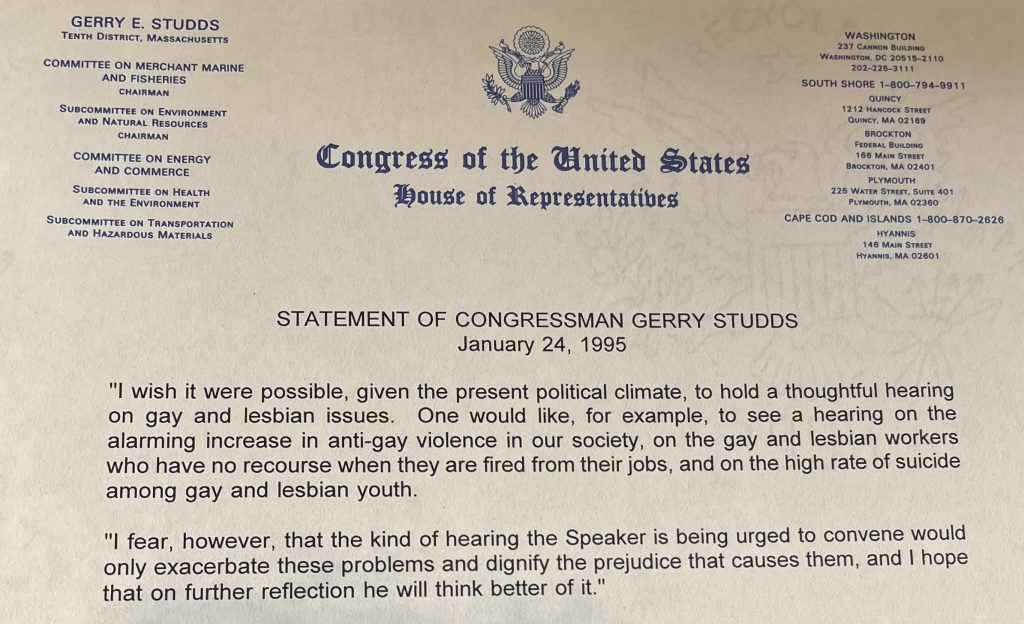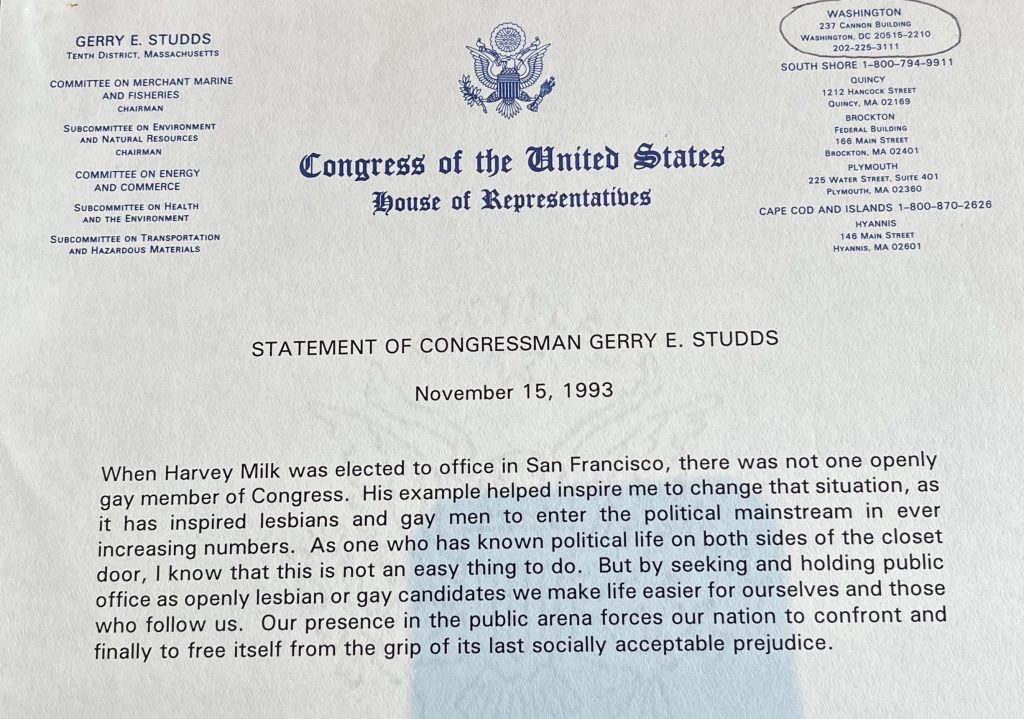by Meg Szydlik, Visitor Services Coordinator
May 17, 2024, was the 20th anniversary of the Supreme Judicial Court of Massachusetts’ ruling that legalized gay marriage in the state, the first state in the nation to do so. To celebrate such an important landmark, as well as Pride month, I wanted to look at some LGBTQIA+ representation in our archives. I found out that we have the papers of Gerry E. Studds, the first openly gay US Congressman, and decided to explore them. I had never heard of him before, so it was fascinating to learn about this piece of history as someone who did not grow up in Massachusetts. Outed after a male ex-page reported having a consensual sexual relationship with Studds when he was 17, Studds chose to acknowledge and claim his sexuality rather than hide behind a veneer of heterosexual respectability. His bid worked. He would go on to serve in Congress for more than a decade after the scandal broke. Representing the 10th District including Cape Cod and the South Shore, he was committed to addressing marine and environmental concerns and maintained a strong anti-war stance throughout his time in Congress. I would love to explore his other activist focuses eventually, but for this blog I want to focus on his AIDS advocacy and support for gay rights.
![Small black and white image of a white man with thinning hair wearing a white shirt with a dark tie. He is wearing large glasses on his face and is frowning.]](https://www.masshist.org/beehiveblog/wp-content/uploads/2024/06/Studds.jpg)
I remember learning about AIDS as a child, but by the time I learned about it, it was no longer a death sentence the way it was in the 80s when Studds first spoke up about it. In his papers, he continually pointed out how HIV/AIDS was a deadly infection. He heavily critiqued his fellow representatives for not considering groups affected, such as gay men and intravenous drug users, as worthy of protection. In his view, it was a serious disease and a health crisis. Studds’ disagreement with Reagan’s hands-off approach to the epidemic is rooted in his observation that it “seems that the principal social activity today of a whole generation of young gay men and women is attending the funerals of equally young friends.” He also explicitly links support for an improved healthcare system to an improved prognosis for AIDS patients and vocally calls for more funding for AIDS care, treatment, and research.

He does not only care about AIDS, however. Studds is vocal about other gay issues, like military service. He objects to the anti-gay rules in the military, including what became known as “Don’t Ask, Don’t Tell,” and calls for gay military members to be able to serve openly and “with dignity,” pointing out that “you cannot blackmail someone who has nothing to hide.” It was not until 2011 that the policy was repealed and LGBTQ people could serve openly in the military without threat of being discharged. He argued that “the fear of gays is largely based on an ignorance that breeds ignorance” and that normalizing being gay was the key to creating a society where LGBTQ people are welcomed and cared for.

It’s striking to read these documents and see just how recent many LGBTQ gains are. Studds came out in 1983. Gay marriage was legalized federally in 2015. The US Supreme Court upheld that employers cannot discriminate on the basis of sexual orientation or gender identity in 2020. These are all well within living memory. Civil rights are living, breathing, developing laws and policies, and the reality is still very far from rosy. As Gerry Studds said, “we will continue the struggle until the final chapter has been written and everyone is treated with dignity and respect.”

